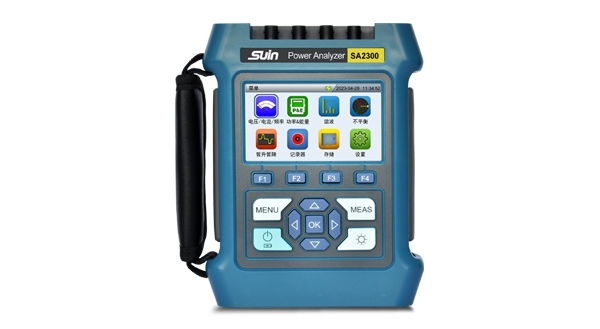Three Phase Power Analyzer: Accurate Measurements for Electrical Systems
Introduction:
In the realm of electrical power analysis, understanding the behavior and characteristics of three-phase systems is crucial. Three-phase power analyzers are advanced instruments designed to measure and analyze the electrical parameters of three-phase systems accurately. These devices play a vital role in industries, power distribution networks, and renewable energy systems, providing valuable insights into power quality, efficiency, and performance. In this article, we will explore the features, applications, and advantages of three-phase power analyzers, highlighting their significance in modern electrical engineering.
Overview of Three-Phase Power Analyzers:
A three-phase power analyzer is a specialized instrument used to measure and analyze various electrical parameters in three-phase systems. These parameters include voltage, current, power factor, active power, reactive power, apparent power, harmonics, and frequency. By capturing and analyzing these measurements, the power analyzer provides valuable data for system optimization, troubleshooting, and energy management.
Key Features and Capabilities:
Accurate Measurement: Three-phase power analyzers are equipped with high-precision sensors and advanced algorithms, ensuring accurate measurements of electrical parameters. These devices offer high-resolution displays and can capture and analyze fast-changing electrical signals with precision.
Comprehensive Analysis: Three-phase power analyzers provide a comprehensive analysis of power quality. They can detect and analyze harmonics, voltage sags, swells, transients, flicker, and other power anomalies. This information helps identify potential issues, evaluate system performance, and comply with power quality standards.
Real-time Monitoring: These analyzers enable real-time monitoring of electrical parameters, allowing engineers and technicians to observe and analyze system behavior continuously. Real-time data acquisition and visualization help in identifying fluctuations, abnormalities, and trends, facilitating prompt corrective actions.
Data Logging and Reporting: Three-phase power analyzers often include data logging capabilities, enabling the recording of electrical measurements over extended periods. This data can be downloaded and analyzed later for in-depth evaluation and reporting. Reports generated by the analyzers provide valuable insights into power consumption, efficiency, and system performance.
Applications of Three-Phase Power Analyzers:
Industrial Power Monitoring: Three-phase power analyzers find extensive use in industrial settings for monitoring and optimizing power consumption. They aid in identifying energy inefficiencies, power losses, and unbalanced loads, leading to improved energy management and cost savings.
Power Distribution Networks: In power distribution networks, three-phase power analyzers help assess the quality and reliability of power supplied to consumers. They enable utility companies to monitor parameters such as voltage, current, and harmonics, ensuring compliance with regulatory standards and resolving power quality issues.
Renewable Energy Systems: Three-phase power analyzers play a vital role in the installation and monitoring of renewable energy systems such as solar and wind power. These analyzers assess the performance, efficiency, and power quality of the systems, helping optimize energy production and integrate renewable sources into the grid.
Research and Development: Three-phase power analyzers are invaluable tools in electrical engineering research and development. They aid in characterizing and testing electrical components, systems, and prototypes, ensuring compliance with industry standards and validating performance.
Advantages of Three-Phase Power Analyzers:
Accurate Power Measurement: Three-phase power analyzers provide precise measurements of electrical parameters, ensuring accurate evaluation of power quality, efficiency, and performance.
Time and Cost Savings: By quickly identifying power anomalies and inefficiencies, these analyzers save valuable time in troubleshooting and maintenance processes. Additionally, optimizing power consumption leads to cost savings in energy bills.
Enhanced System Reliability: Continuous monitoring and analysis offered by three-phase power analyzers contribute to improved system reliability by identifying and addressing power quality issues promptly.
Compliance with Standards: Three-phase power analyzers help ensure compliance with industry standards and regulatory requirements, ensuring safe and reliable operation of electrical systems.
Conclusion:
Three-phase power analyzers have become indispensable tools in the field of electrical power analysis. With their accurate measurements, comprehensive analysis capabilities, and real-time monitoring, these devices empower engineers, technicians, and utility companies to optimize power consumption, enhance system performance, and ensure power quality. As electrical systems continue to evolve, three-phase power analyzers will continue to play a vital role in maintaining efficient and reliable power distribution networks and renewable energy systems.



